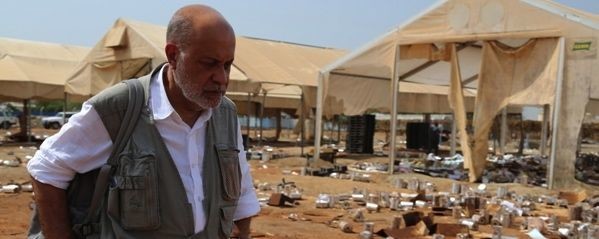The United Nations reported today that it has provided food to about 30,000 people in South Sudan’s Unity State, or about 16% of those estimated to be displaced (IDPs) by conflict in the state.
A month ago the UN World Food Programme disclosed that looters took more than 3,700 tonnes of food from its warehouses in the country, explaining the loss would hamper efforts to feed displaced civilians.
Typically the agency handles the larger logistic aspects of moving food throughout the country then contracts with non-governmental organizations (NGOs) to distribute the food locally to individuals or households.
According to a regular UN situation report produced by the Office for the Coordination of Humanitarian Affairs (OCHA), food aid has reached 30,000 in Unity State since the start of the conflict.
That would be about 16.5% of the displaced population in the state, which is estimated in the same document to be 182,000 people, about a third of the state’s population.
Over the past few days in Bentiu civilians have been fearing a possible counter-attack on the town by opposition forces. This caused more than 1,000 people to return back into the UN base in the town. With more than 3,400 people now at the base in Bentiu and more continuing to arrive, “over-congestion continues to be a concern,” OCHA stated.
Leer, which was burnt during a government offensive in late January, “is still reported to be empty, even though (NGO) partners have not observed military presence in the area,” the UN reported.
Meanwhile, in Awerial County of Lakes State aid organizations said they do not have enough boats. They want to expand operations to reach people living on islands and in swamp areas.
Schools for the displaced population in Awerial have been set up, with 316 temporary classrooms reported to be ready for children in Minkamen.
However, there are tensions with the host community over land in the eastern area of Lakes State since nearly 100,000 people crossed into their territory. “New arrivals in Awerial mainly from Jonglei’s Twic East and Bor South continue to create demand for space,” stated OCHA.
Evacuation of aid workers in Upper Nile, meanwhile, was delayed by about five days because flights could not land in the embattled capital Malakal. But over 80 “non-critical re-locatable aid workers” were flown out over the weekend, the UN says.
“Only critical staff remain on the ground to ensure response operation continues,” according to the report, adding, “Food distribution which started on 22 February has so far reached about 5,000 people displaced inside the UN base” in Malakal.
Photo: WFP Assistant Executive Director Ramiro Lopes da Silva surveys the damage at the main warehouse in Malakal, South Sudan, January 2014 (WFP/Challiss McDonough)
Related coverage:
Press release: Conflict ‘devastating’ for Leer displaced (12 Feb.)
Satellite images of burned homes after fighting in Leer, Unity State (4 Feb.)
SPLA recaptures Bentiu (10 Jan.)
Mayom: ‘Ghost town, burnt down, many bodies’ (8 Jan.)




